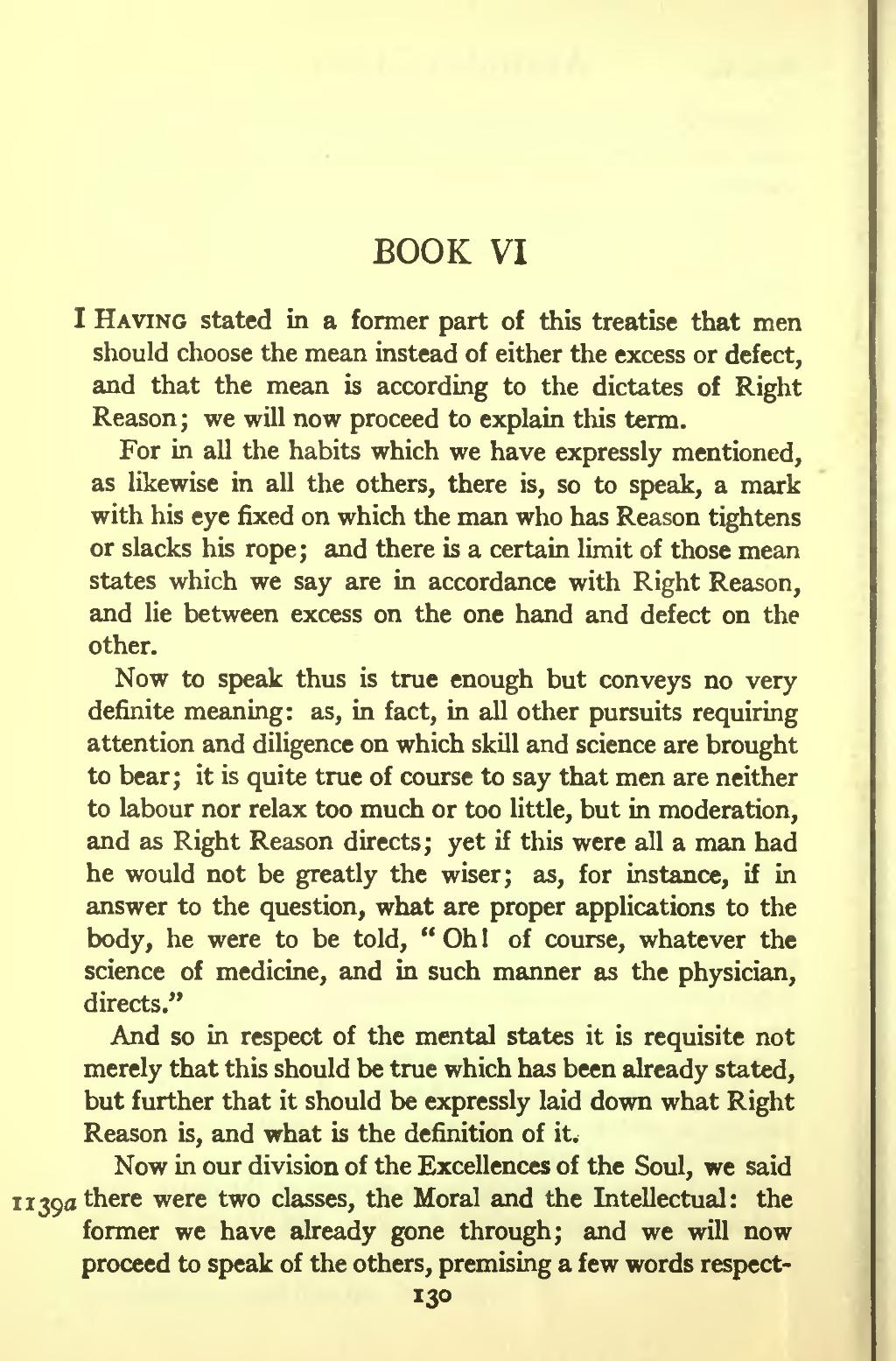BOOK VI
I
Having stated in a former part of this treatise that men should choose the mean instead of either the excess or defect, and that the mean is according to the dictates of Right Reason; we will now proceed to explain this term.
For in all the habits which we have expressly mentioned, as likewise in all the others, there is, so to speak, a mark with his eye fixed on which the man who has Reason tightens or slacks his rope;[1] and there is a certain limit of those mean states which we say are in accordance with Right Reason, and lie between excess on the one hand and defect on the other.
Now to speak thus is true enough but conveys no very definite meaning: as, in fact, in all other pursuits requiring attention and diligence on which skill and science are brought to bear; it is quite true of course to say that men are neither to labour nor relax too much or too little, but in moderation, and as Right Reason directs; yet if this were all a man had he would not be greatly the wiser; as, for instance, if in answer to the question, what are proper applications to the body, he were to be told, “Oh! of course, whatever the science of medicine, and in such manner as the physician, directs.”
And so in respect of the mental states it is requisite not merely that this should be true which has been already stated, but further that it should be expressly laid down what Right Reason is, and what is the definition of it.
Now in our division of the Excellences of the Soul, we said there were two classes, the Moral and the Intellectual: 1139athe former we have already gone through; and we will now proceed to speak of the others, premising a few words respect-
130
